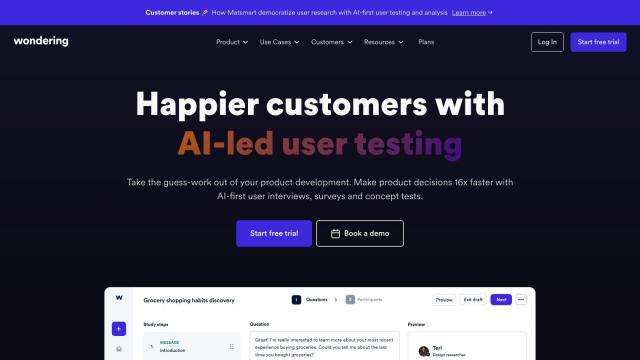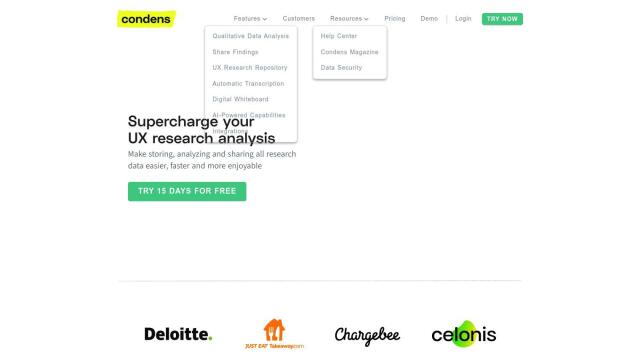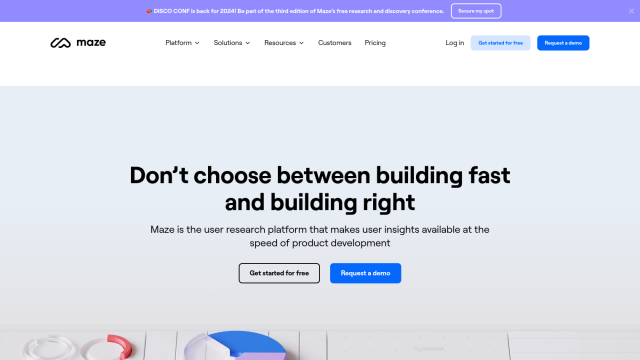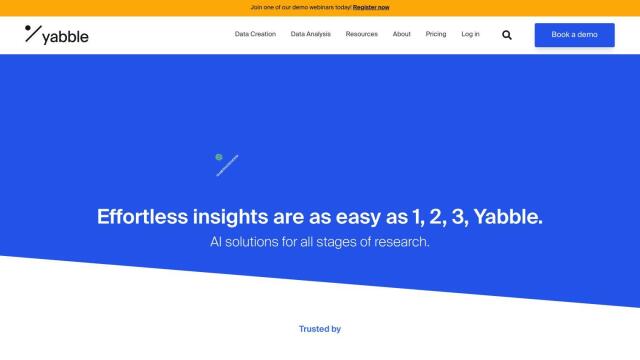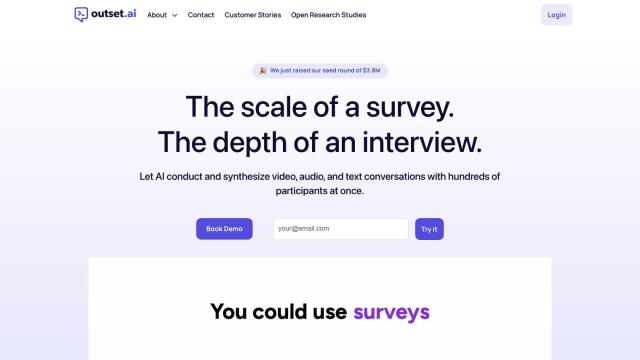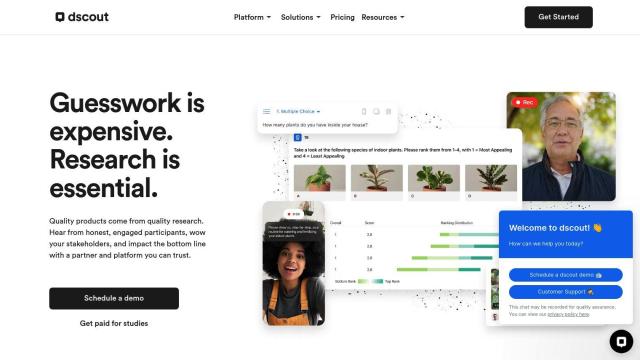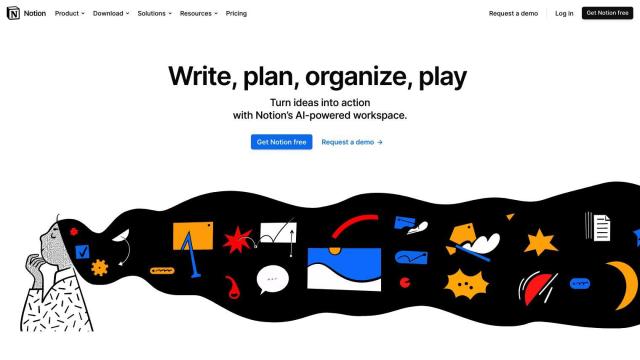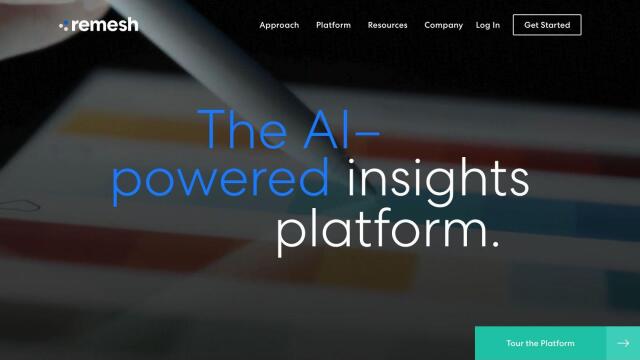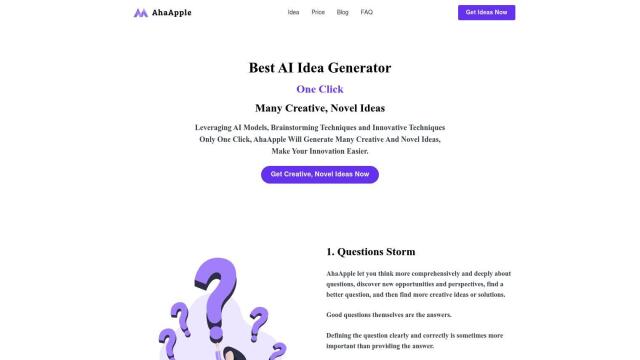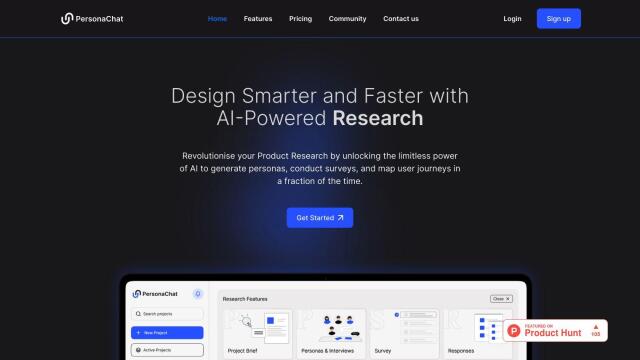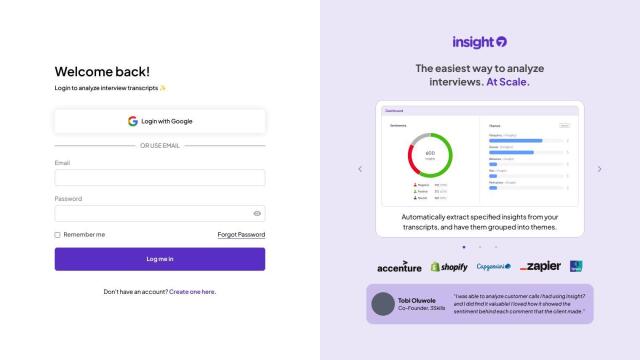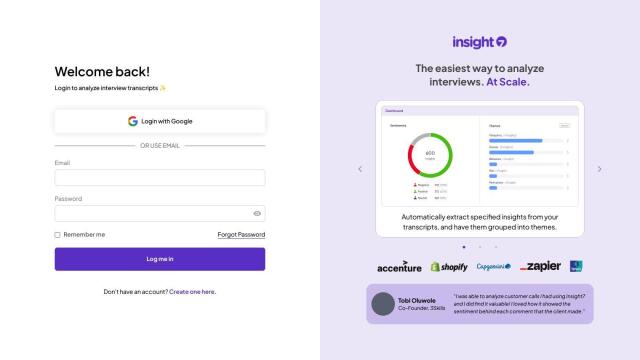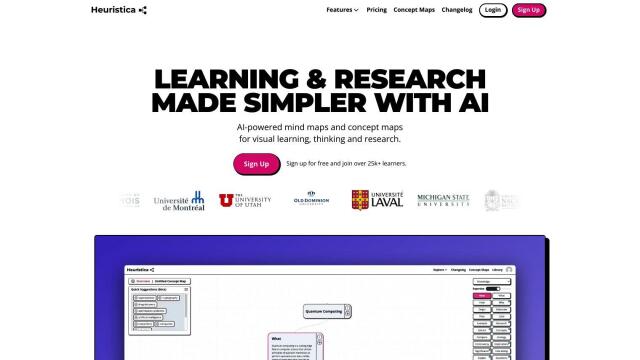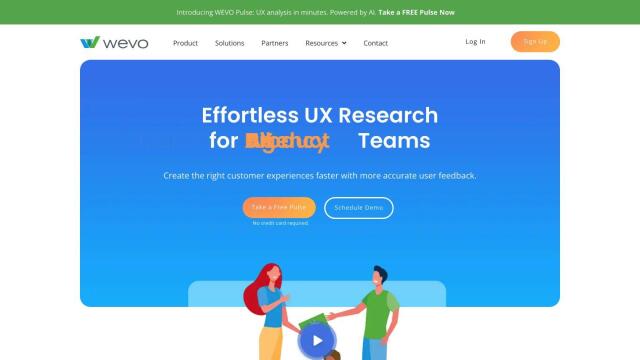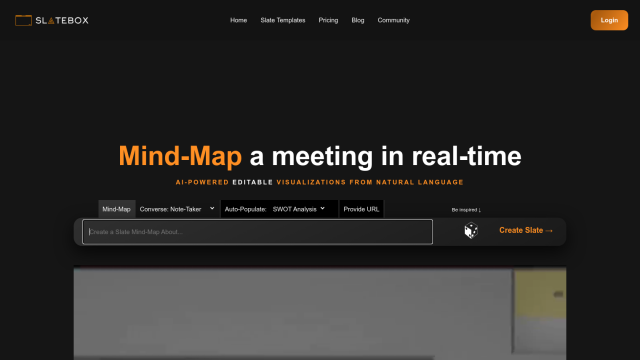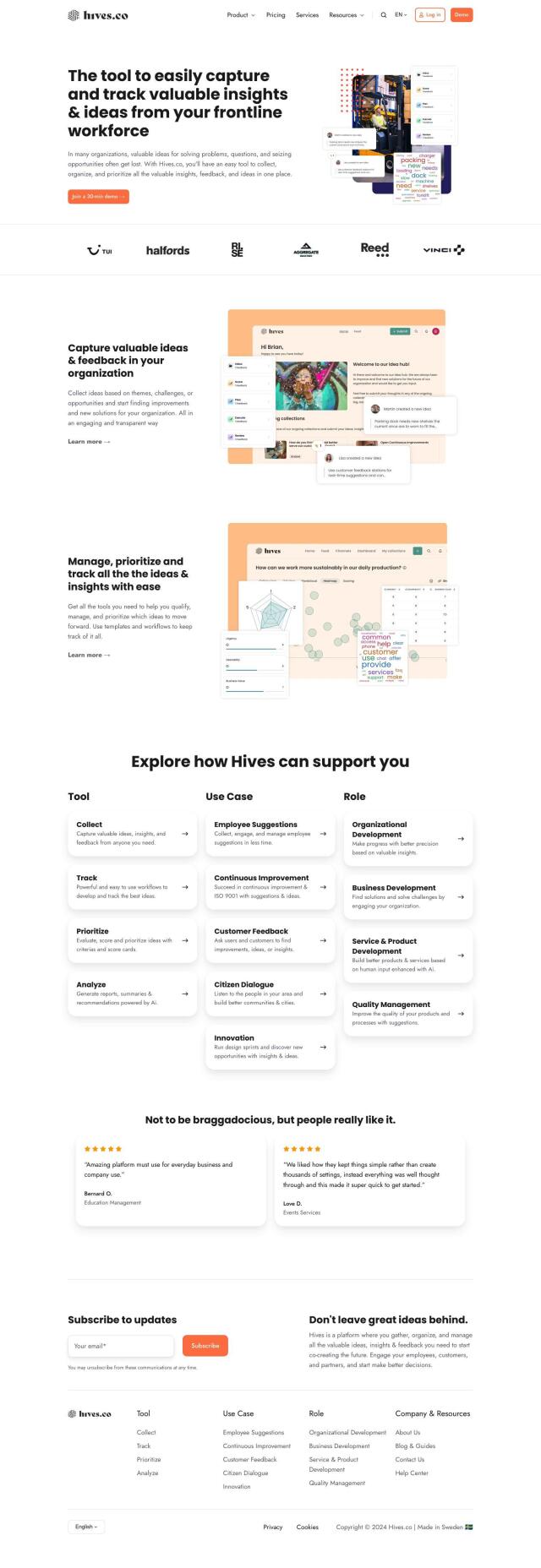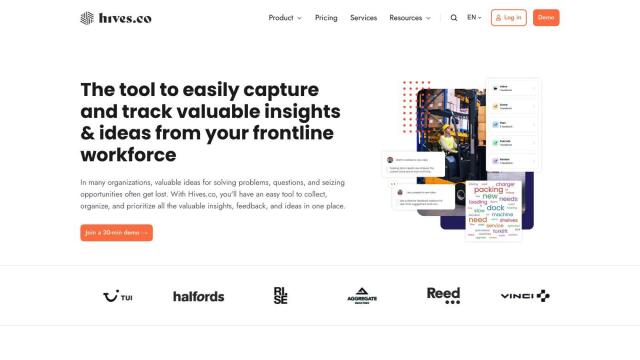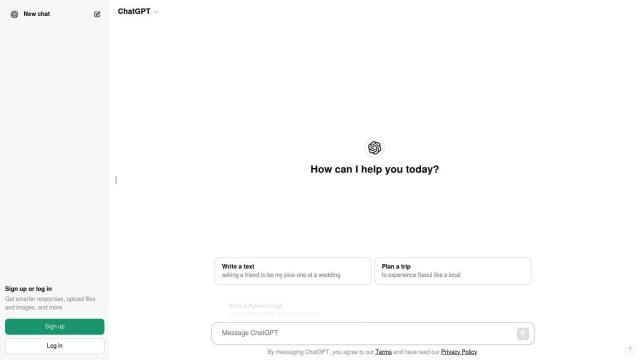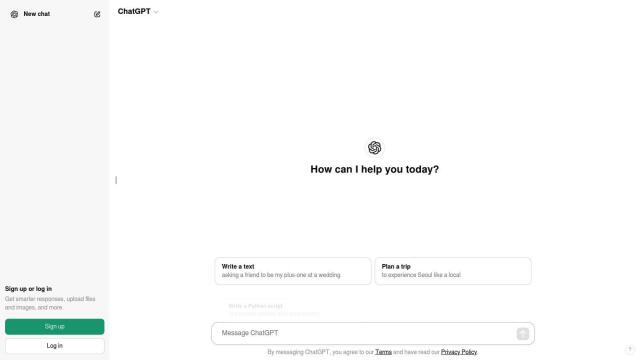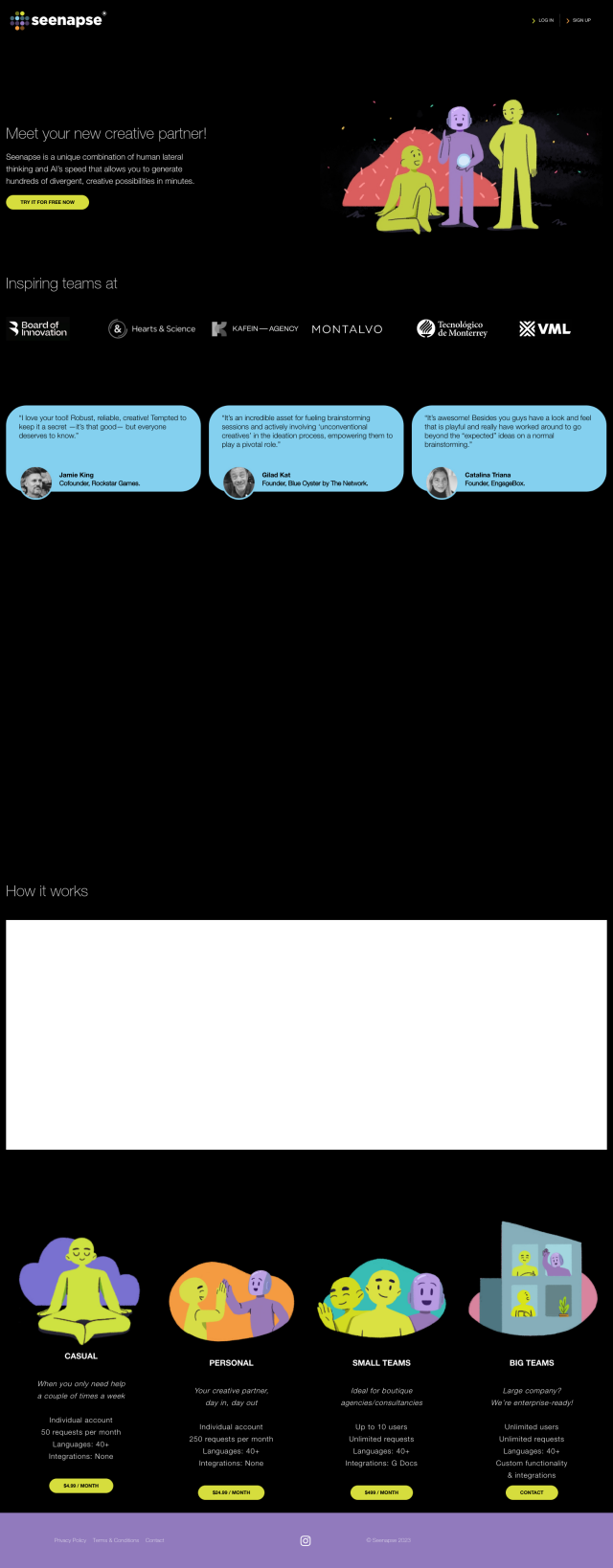Question: Looking for a platform that can help us generate ideas and organize thoughts from user research data, do you know of any?

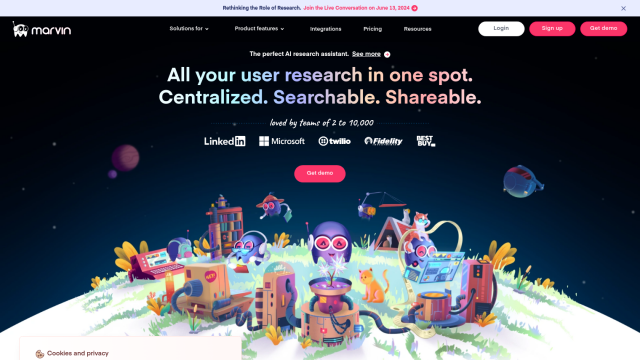
Marvin
If you need a tool to spark ideas and organize your thinking based on user research data, Marvin could be a good choice. Marvin is a user research platform that uses AI technology to automate tedious parts of qualitative research and data analysis. It's a centralized repository for storing and organizing user interviews, transcripts, notes and other research artifacts that your team can access. Marvin also automates transcription, tagging, analysis and integration with tools like Zoom and Google Sheets so you can turn raw research data into insights.

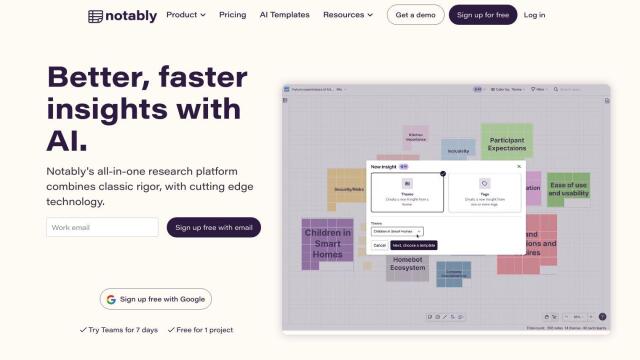
Notably
Another good option is Notably, an all-in-one research platform that marries traditional research methods with AI technology. Notably offers AI-driven templates for data analysis, including cluster analysis, sentiment analysis and filtering. It also has a multi-view workspace, elegant insights and a research repository to help you get a handle on your data. The platform is geared for product researchers, market researchers and academic researchers who want to spend less time on research and get better results.

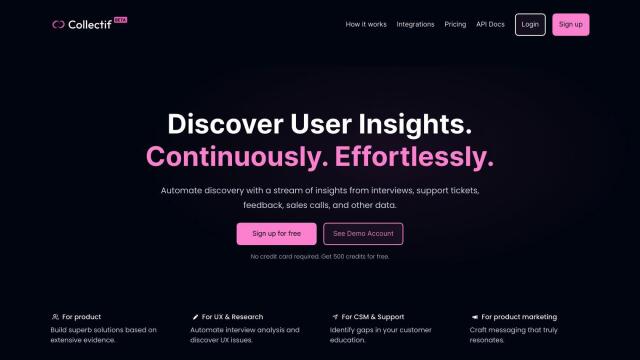
Collectif
If you want a more data-driven approach, check out Collectif. This AI-powered user research software ingests data from various sources to deliver insights that inform product and growth decisions. It offers automated data analysis with the GPT-4 AI model, weekly insights reports and integration with other tools. The service can handle multiple languages for text analysis and transcription and offers flexible pricing tiers for product development, UX research and customer success.
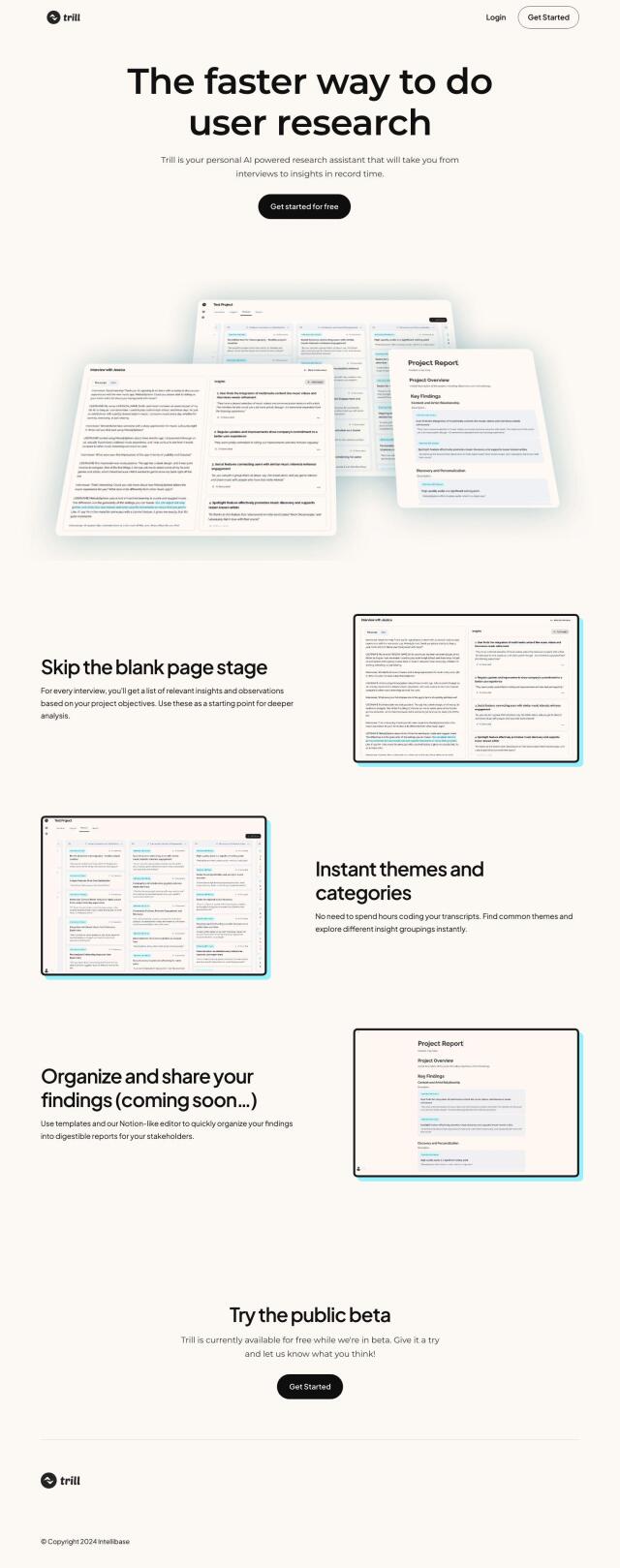
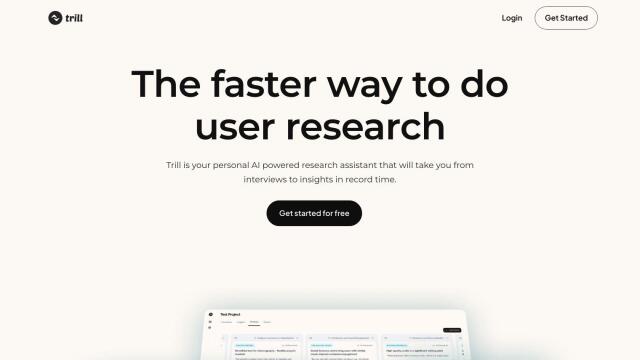
Trill
Last, Trill is an AI research assistant that helps you accelerate user research by generating a list of relevant insights and observations. It can quickly spot common themes and categorize insights from transcripts, so you don't have to spend time coding. Trill is in public beta testing, but you can use a free service to try to speed up your user research workflow and cut the time and effort needed for data analysis.

